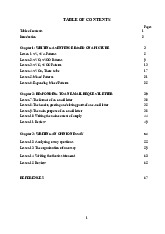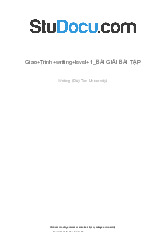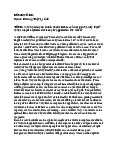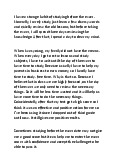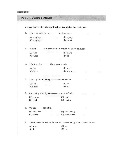
Preview text:
SUMMARY
3. School test harm science education
Making students take exams has a negative effect on youngsters' inherent
curiosity as well as their enthusiasm in science. Researchers from Durham
University warn that there was too many schools teach science only to pass
exams, but very few scientific institutions truly inspire students to solve problems
on their own. All physics, chemistry, and biology lectures should emphasize
learning via doing, experimenting, and observing.
4. Flip-flops could be bad for our health
Wearing flip-flops to the beach might be harmful to our health according to the
American College of Sports Medicine. Flip-flops are worse than high heels for
causing aches and pains throughout the body, not just in the feet. People were
"extremely worried about stubbing their toes," and they wanted to make sure they
stayed on the foot and did not fly off.
5. Scientists use windows to trap solar energy
The energy of the Sun can now be captured in a novel way, according to
researchers at the Massachusetts Institute of Technology. The dyes aid in
capturing solar light, that is then delivered to specialized storage cells where it is
converted into power. Another day, it could even imply that our homes' windows
will generate more energy than the traditional solar panels already in use around the globe.
6. Human noise pollution- a danger to sea life
According to IFAW publication "Ocean Noise: Turn it Down" , Marine life is under
a major threat from human-made noise pollution in the world's oceans and seas.
There aren't many remaining underwater habitats where marine animals may live
in peace, they rely on sound for communication, mate-finding, and food-
gathering. For marine life, noise levels have gotten out of hand.
